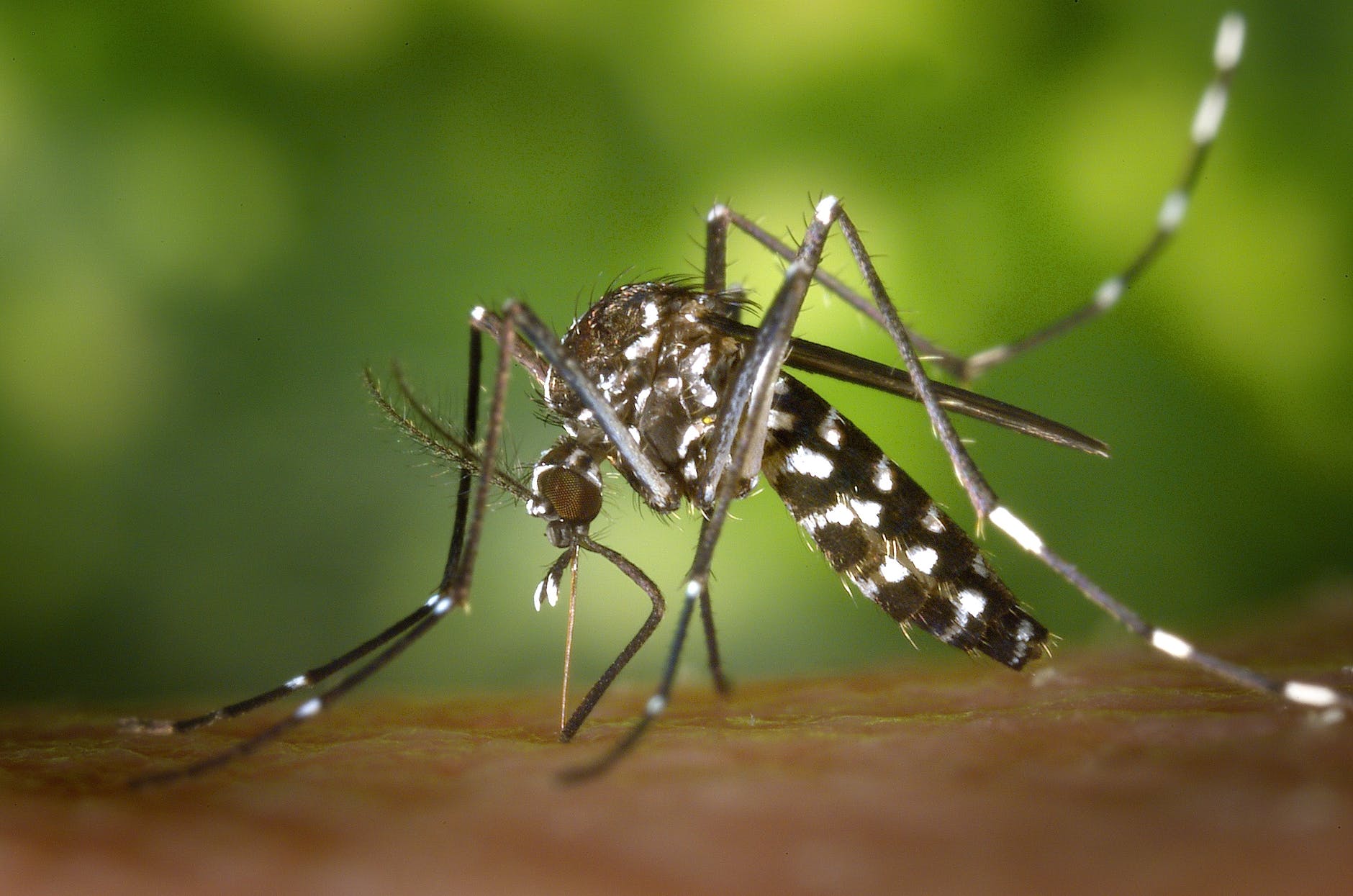Vaccines to get before your business travel or vacation
Depending on where you are going, you may need to get a vaccine to protect you from added risks.
Visit the Mopani Pharmacy Wellness clinics and ask about the following vaccines before your next trip.
Note: Travel vaccines can only be administered by appointment, due to a special regulation. Please book your appointment in advance. Travel vaccines are only administered at the Crossing Centre (Thursdays only) and White River stores.
Yellow Fever

Yellow fever is transmitted by the bite of an infected Aedes Aegypti mosquito. Over the last few decades, this mosquito has been found across the globe in tropical, subtropical, and in some temperate climates.
Yellow fever is a serious disease caused by the yellow fever virus. There is no medicine to cure yellow fever, there are only symptomatic treatments available.
Symptoms and signs include:
- Sudden onset of fever and chills
- Headache, back pain, or general body aches
- Nausea or vomiting
More severe symptoms of yellow fever can include:
- Jaundice (yellow skin or eyes)
- Bleeding from multiple body sites
- Shock (life-threatening condition in which the body is not getting enough blood flow)
- Liver, kidney, or another organ failure
Severe yellow fever has a mortality rate of 30% to 60% of affected people.
In addition to getting vaccinated, you can also protect yourself from yellow fever by avoiding mosquito bites:
- Use insect repellent
- Wear long-sleeved shirts and long pants
- Stay in well-screened or air-conditioned areas
The yellow fever vaccination is a live vaccine containing weakened, live yellow fever virus. It is given as a single shot. One dose provides lifelong protection for most people. It is highly recommended for travellers to certain parts of South America, Africa and India. It should be administered at least 10 days before planned arrival (this is an international country requirement).
Remember not to donate blood for 14 days after vaccination, because there is a risk of passing vaccine virus to others during that period. This is the only compulsory vaccine in the world.
Hepatitis A

Hepatitis A is a highly contagious liver infection caused by the hepatitis A virus. This is always an acute, short-term illness. It spread through ingestion of faecal-contaminated food and water.
Symptoms of hepatitis A range from mild to severe, and can include
- Fever
- Malaise / flu-like symptoms
- Loss of appetite
- Diarrhoea
- Nausea
- Abdominal discomfort
- Dark-coloured urine / pale stools
- Jaundice (yellow skin and or eyes)
Not everyone who is infected will have all of the symptoms.
Hepatitis A vaccination is a two-dose vaccine and is recommended for most travellers.
Administer two doses, at least six months apart. At least one dose should be given before travel.
Although babies are routinely given the hepatitis A vaccine as part of the private vaccine schedule, the vaccine is said to last between 14-20 years in children, and 25 years in adults. It is best to get vaccinated again once you reach adulthood.
Hepatitis B and D

Hepatitis B is generally on-going and chronic. It spreads through contact with infectious bodily fluids. Hepatitis D is known as the ‘delta’ hepatitis. It spreads through direct contact with infected blood. For some reason, one can only get hepatitis D, in conjunction with hepatitis B.
For this reason, when you vaccinate against hepatitis B, you are protecting against hepatitis D as well. This vaccine is also formulated to be suitable for both children and adults.
Hepatitis B is a serious liver infection.
Symptoms are variable and include:
- Yellowing of the eyes
- Abdominal pain
- Dark urine
Some people, particularly children, don't experience any symptoms. In chronic cases, liver failure, cancer or scarring on the liver (cirrhosis) can occur. The condition often improves on its own. Chronic cases require medication and possibly a liver transplant.
Hepatitis B vaccination is a three-dose vaccine, recommended for all non-immune travellers, but especially those who are traveling to a country with hepatitis B prevalence greater than 2%.
You should receive your first dose, one month later, the second dose, and six months after your first dose, the last. An accelerated schedule is available.
Typhoid fever

Typhoid is a bacterial disease spread through contaminated food, water or close contact.
Symptoms include:
- High-grade fever
- Headache
- Stomach pain
- Constipation or diarrhoea
Typhoid vaccinations are administered via an injectable vaccine and is recommended for travellers going to a country that is endemic for typhoid. Typhoid fever is endemic in Asia, Africa, Latin America, the Caribbean, and Oceania. More than 80% of all cases are found in east-Asian countries.
You will need to get this vaccine at least two weeks before travel, it will last for a period of three years.
Rabies

Rabies is a deadly virus that attacks the central nervous system, it is transmitted by saliva of infected animals.
Symptoms include:
- Fever
- Headache
- Excess salivation
- Muscle spasms
- Paralysis
- Mental confusion
Seek immediate medical attention after a bite or suspected bite. There is no specific treatment for rabies. Once symptoms appear, it's nearly always fatal.
The rabies vaccination is a three-dose vaccine recommended to travellers who are
- Going to high-risk countries
- Adventure travellers planning to spend a lot of time outdoors or in high-risk environments
- Veterinarians, animal handlers, field biologists, or laboratory workers working with animal-specimens or handling animals
Begin vaccine series at least three weeks before traveling. Get your first dose, your second dose after seven days, and your third dose 21 days after the first dose.
Meningococcal Disease

Meningococcal meningitis, a bacterial form of meningitis, is a serious infection of the meninges that affects the brain membranes. It can cause severe brain damage and is fatal in 50% of cases if untreated. It is transmitted from person-to-person via oral and respiratory secretions. It is especially dangerous among babies and young children, and should be included in their vaccine schedule. Be sure to double check if your child did indeed receive it.
Symptoms may include:
- Fever and chills
- Fatigue
- Vomiting
- Cold hands and feet
- Severe aches or pain in the muscles, joints, chest, or abdomen
- Rapid breathing
- Diarrhoea
The meningococcal meningitis vaccination is recommended for travellers to areas in the “meningitis belt” of sub-Saharan Africa, particularly during the dry season (December through June), when the disease is more common. Required for travellers to Saudi Arabia for the Hajj.
It should be administered at least 10 days before travel. This vaccine lasts for a period of 5 years.
To remember
- Always consult guidelines of other countries if you plan an international trip
- Always check in with your doctor or pharmacist if you plan a trip, especially if it is to another province
- Don’t use antibiotics two to three weeks after a vaccine
- Do not get a vaccine if you are sick or have a fever
Read more: Understanding the risk when delaying child vaccinations
We can deliver your medication, supplements, cosmetics, fragrances and other Mopani online shopping, nationwide. Contact us for info: mopani.co.za | crossing@mopani.co.za | Tel: 0137555500 | WhatsApp: 0661921703


